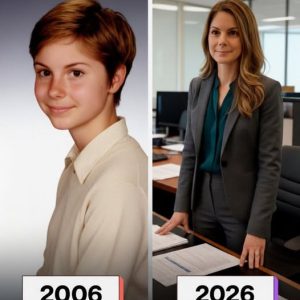I did not step onto that stage to settle a score or to demand that my name be written back into his story. I spoke because the moment called for honesty, and honesty required that he be seen in full. I described him as the world should understand him, a young man shaped by kindness, shaped by years of steady effort, shaped by many quiet influences that formed the foundation beneath his success.
I honored the small gestures that had lifted him forward without drawing attention to myself or placing a single spotlight on what I had done. I simply told the truth. The audience leaned forward expecting tension, expecting a dramatic revelation or a confrontation waiting to burst open. What they received instead was gratitude, a calm reflection that softened the room and surprised even those who thought they knew the story.
When he found me afterward, tears forming before words did, he struggled to speak through a mix of relief and apology. In his voice I heard recognition, not just of what I had done, but of the years we had lived through together. He finally understood the meaning of the rides that came without being asked, the late night study sessions, the meals left waiting when he was overwhelmed, the quiet guidance that asked nothing in return.
None of these acts appeared on stages or in speeches. They lived in the unseen places where love does its most lasting work. In that moment I realized that public acknowledgment had never been the point. What mattered was that he now saw the truth clearly, not because I demanded it, but because he was ready. The applause that rose behind him did not belong to me; it belonged to the idea that love can be patient, that it does not fade when it goes unrecognized, and that it does not need validation to remain real.
Later, as the room emptied and the lights dimmed, I felt no triumph, no vindication, only a quiet calm. Love had done what it was meant to do. It had supported him until he could stand on his own. It had stepped back when he needed space to grow. It had remained present without insisting on being named. True care does not write itself into the narrative with bold strokes; it lives between the lines, shaping the story in ways that only become visible with time.
What happened that night was not a reclamation. It was a revelation. The truth surfaced naturally, and in recognizing it, he stepped into a deeper maturity. He understood that success is never solitary—it is built through shared effort, invisible support, and devotion that asks nothing except the chance to help someone rise. That truth will stay with him longer than any speech.





